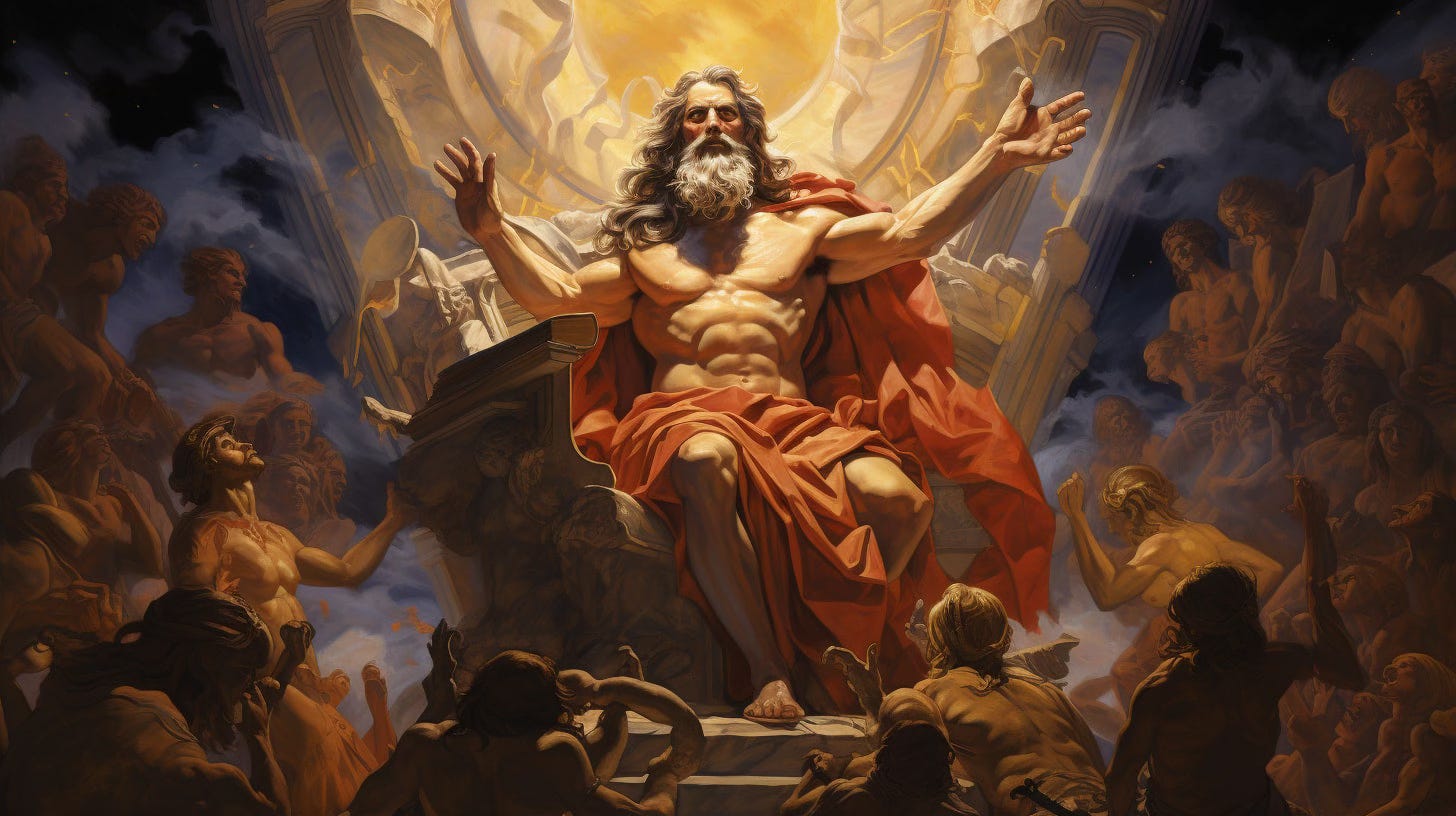The Iliad: Reflections on Books 8 - 10
The Rage of Achilles
Who directs the course of action in The Iliad?
This question continues to permeate the epic. At the start of book 8, Zeus demands submission to his strict decrees to the point where the gods and goddesses will be punished if they attempt to help the Trojans or Greeks. Athena disobeys a mere one page later to declare to Zeus and the full assembly of gods that they will “simply offer the Argives tactics that may save them.” (Athena employs a strategy quite common today when nations send “advisors” instead of soldiers, blurring the lines of engagement).
In a bizarre reply, Zeus tells Athena (and by extension the rest of the assembly) that “nothing I said was meant in earnest.” Is this a “just kidding” or a shrewd reminder of who is in charge?
The remainder of book 8 is full of gods disobeying this decree while Zeus directly intervenes with strategic lightning strikes and assisting both sides.
Which brings up an interesting question of why Zeus ping pongs between assisting the Greeks and the Trojans. If “…the will of Zeus was moving toward its end (page 1),” why prolong these battles? Do the gods enjoy this war? Do they receive some benefit in all of this? If not, why doesn’t Zeus stick to one side, allow them to obliterate the other, and quickly end this carnage?
Perhaps the prolonging of the war is Zeus’ will and when the gods and goddesses offer their help (with or without Zeus’ blessing), it helps drag out the war.
Achilles’ Rage
It’s clear from the first lines of the epic that the rage of Achilles is going to play a major role in the story. Book 9 presents an interesting counterpoint to and question about this rage. Achilles is offered a set of gifts so over the top and impressive that their rejection is absurd. No man’s rage could be that great.
But what about the prophecy?
Thetis, mother of Achilles, presents two fates to Achilles, run (return to fatherland) and you’ll live or fight and die. The counterpoint is that the rage of Achilles may be a mechanism to halt his fate. Achilles knows the ramifications for accepting these gifts and agreeing to fight. He’ll actually never get to enjoy them because he will be dead.
On the storytelling front, it’s interesting that Achilles knows about the prophecy. It would be a different circumstance if the reader was made aware of the prophecy but Achilles left in the dark. Literature if full of people becoming aware of a fate and attempting to change the result. Perhaps this rage is a cover that provides Achilles time to consider whether or not glory is his ultimate goal. If so, he cannot return to the fatherland. Instead, he must fight. No amount of gifts could sway him in that case. Inaction prolongs the inevitable and rage in a convenient cover for some extra time.
Book 10 begins with a peek into the anxieties of the leadership of both the Greeks and the Trojans. If this is paired with book 9, one reading could be to tie the anxiety of leadership to Achilles’ anxiety (instead of his rage) in light of the prophecy.
The Trojans vs The Allies
Last week, the question was posed about the relationship between the Trojans and the allies fighting on their behalf. Are both groups fighting as one? The deeper question is can the allies be counted upon in the heat of battle?
We’re provided a little bit of insight in book 10 when Dolon reveals that the “…native Trojans hold their posts” while the allies and “far-flung friends, they’re fast asleep.” This distinction seems obvious but important to consider for the remainder of the epic. The Trojans are fighting for their survival, not only of their lives but for their city. The stakes are not as high for their allies. It will be interesting to see if this plays a part in the outcome of the war.


